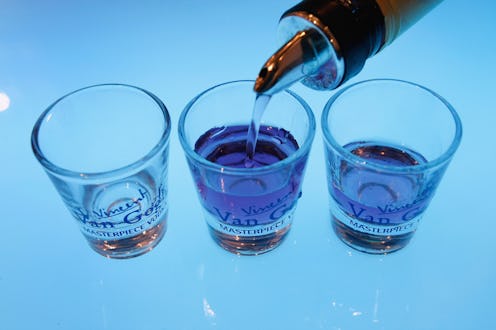News
Sri Lanka Just Ended Its Ban On Alcohol For Women — Here's Why It's So Important

For the first time in 38 years women in Sri Lanka can legally buy alcohol. In a push toward restoring greater gender equality, the government of Sri Lanka has revoked a ban prohibiting women aged 18 or older from legally buying alcohol this week. The ban also prevented women from being employed in places like bars or restaurants that sell alcohol.
Mangala Samaraweera, Sri Lanka's finance minister, took to Twitter Wednesday to announce he had "amended the schedule in the Excise Notification no.666 of the Gazette Extraordinary of 1979 to now allow females over 18 years [of age] to purchase alcohol legally."
But along with enabling Sri Lankan women to purchase alcohol, the government has also opened up a number of job opportunities for women. In announcing the government's decision to revoke the ban, Samaraweera also said they had made it legal for women to be employed in places licensed to sell alcohol without first having to obtain approval from the country's Excise Commissioner.
In its 2017 Global Gender Gap Report report, the World Economic Forum ranked Sri Lanka 109th in terms of gender equality, noting the country had "widened its gender gap" in terms of wage equality for similar work despite having seen an modest increase in the parity of estimated earned income.
But while Sri Lanka's decision to remove its ban on women buying or selling alcohol isn't likely to suddenly bring full gender equality to the South Asian country, it could certainly be a step in the right direction if it opens up more avenues of employment for women. A report released by the World Bank in November noted that while Sri Lanka's economy was growing, women's participation in the workforce was shrinking. According to the report, young and poor women are particularly vulnerable as they experience higher rates of unemployment. The report also found that Sri Lanka's 1.2 million female-headed households experience "some of the poorest labor force outcomes" seen in the country.
"The most equitable and sustainable way of growing Sri Lanka's overall workforce will be by increasing the numbers of women working," the World Bank's report concluded, adding that a change in social attitudes toward women in the workplace, and women in general, would be vital.
"Changing social attitudes will be key to increasing women’s participation," the World Bank said in their report. "Ideas of what women and girls should study have contributed to a human-capital mismatch. Women must be incentivized and supported as they challenge gender norms to pursue subjects that are in demand with employers."
Sri Lanka's decision to revoke its ban on women's alcohol purchasing power comes amid gains for women in other countries, too, albeit on different scales. Saudi Arabia recently rolled out its own sweeping set of progressive reforms, including one enabling women to attend a public sporting event for the first time. In Iceland, the parliament recently made it illegal for companies to pay women less than men for the same job, a move that would have been much less possible if its parliament weren't nearly 50 percent women.
According to the BBC, the change in Sri Lanka's law may not result in a significant number of women heading to the nearest bar with their wallets in hand for a drink. According to the news outlet, cultural and religious norms — Sri Lanka is predominantly a Buddhist nation — mean many women in the country refrain from drinking alcohol. However, even if the government's move to revoke its decades-old ban doesn't have more women in Sri Lanka buying alcohol, it could open up new economic opportunities for them.